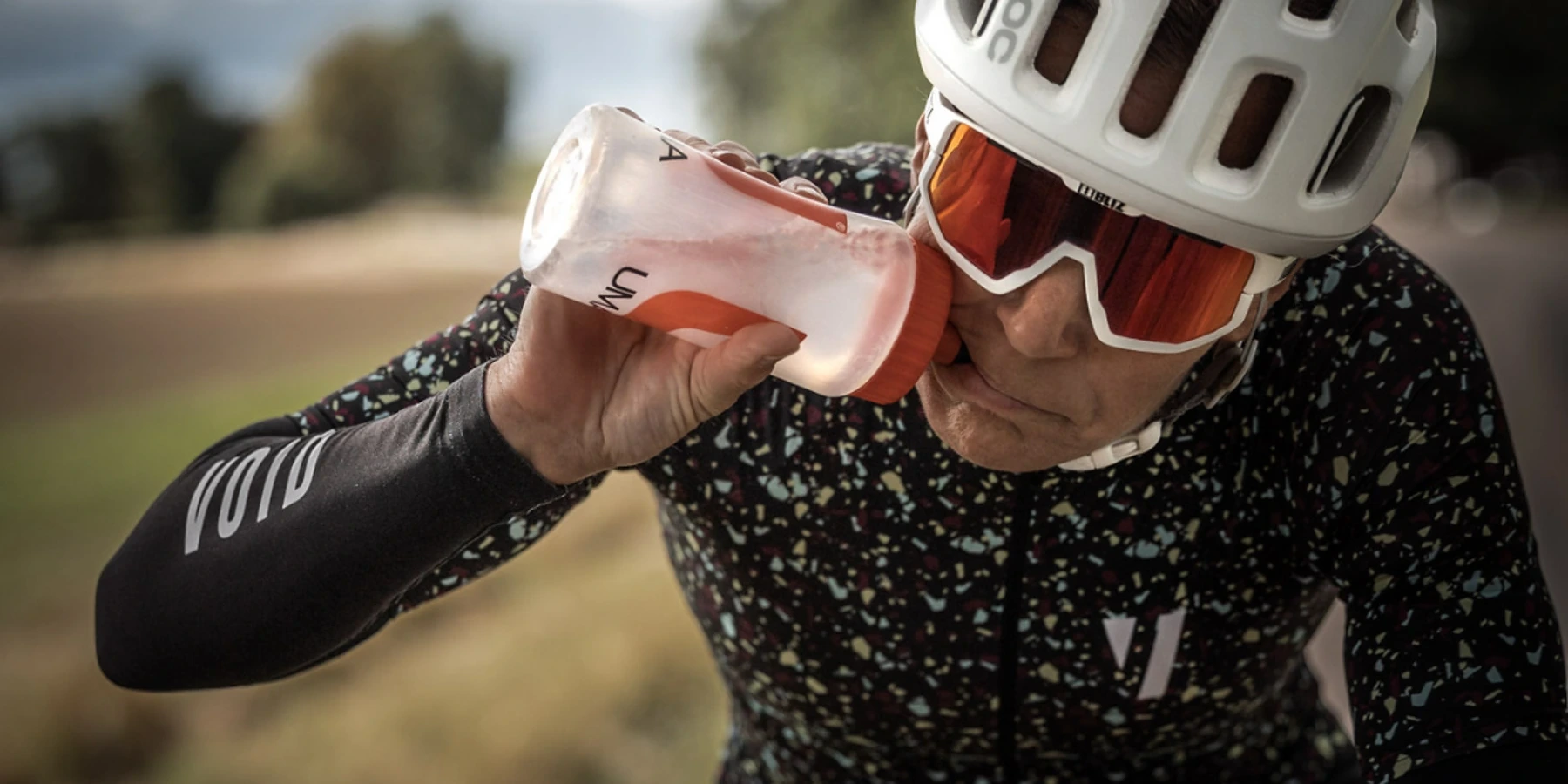
Why consume energy during training?
You might have heard experienced endurance athletes say things like: "You don't need energy for anything under 4 hours", "Real athletes only drink water, you don't need carbohydrates," or "You must train your body to use its fat stores."
The phrase "it works for me" combined with long experience in the sport can of course offer some value when giving advice. But what does the research actually say? Why should I replenish with carbohydrates during training?
Regardless of which sport you participate in, your body needs "fuel" to sustain training and competition. This fuel comes mainly from fats and carbohydrates, which are converted to energy (ATP) in the muscle cells. The ratio of fat to carbohydrates consumed varies depending on the level of exertion, but both energy sources are almost always used in tandem. The higher the intensity, the more carbohydrates the body uses. The reason is that glycogen (stored carbohydrates) requires about 7% less oxygen to form ATP than fatty acids do. Therefore, fatty acids are not as efficient when oxygen is limited.
Even though we have nearly limitless fat stores, we can only store around 500 g of carbohydrates in the muscles and liver — which corresponds to about 1–2 hours of high-intensity activity. Overall, glycogen makes up only about 4% of the body's energy reserves, yet it is the most important fuel source for the majority of physical activity, especially if you want to do more than just walk leisurely or "coast" during competitions.
When athletes start training with full glycogen stores, these can reach critically low levels after a few hours of intense training. Then muscle efficiency deteriorates drastically due to disturbances in calcium handling in the muscle cells. The "wall" becomes inevitable! When glycogen stores are depleted and intensity decreases, fatty acids play a bigger role in energy supply.
Carbohydrates are good, but shouldn't we also focus on fat burning?
Having a body that effectively uses fat as fuel is, of course, positive. But as mentioned above, the body almost always uses both fats and carbohydrates. Part of the adaptive response in endurance training is precisely to improve the ability to use fat as a secondary fuel, while at the same time increasing the capacity to store glycogen and replenishing energy during exercise.
Recent studies show that when athletes train without adding energy or follow a low-carbohydrate diet, they become better at using fat. But most of these studies also show that this does not necessarily lead to better performance. The body is adaptable: if it gets more fat, it learns to burn fat more efficiently, if it gets more carbohydrates, it optimizes absorption and use of carbohydrates.
One of the most prominent and often cited studies in the area was published last year by Louise Burke. It is part of a series of investigations where Burke and her research team study the relationship between a low-carbohydrate diet and athletic performance. In the latest study, elite racewalkers followed either a high-carbohydrate or a low-carbohydrate, high-fat diet (LCHF) for 25 days. They were tested before and after the experiment period under competition-like conditions. The results showed that the LCHF group, despite increased fat oxidation, also had a higher oxygen cost at race pace, which led to a clear decline in performance compared to the group that ate a carbohydrate-rich diet.
Why should I use carbohydrates during training?
In short, it's about efficiency. Carbohydrates are more oxygen-efficient, require less oxygen to produce energy, and can be replenished during the activity itself. This ensures you always have "race fuel" in the tank and can maximize your training.
Conclusion
If your goal is simply to enjoy your activity and maintain health, without chasing the best possible performance, you don't necessarily need to consume carbohydrates or other energy sources during training. You will probably get tired faster and "hit the wall" more often, without maximizing your full potential — but if that's okay with you, then it's not a problem.
If you want to improve your performance, however, carbohydrate intake is crucial to maximize training effect, speed up recovery, and ensure consistency in training. Even if you don't feel a strong need for energy during, say, a 3-hour session, you will perform better and recover faster if you supply energy. This way, you won't start the next interval session with empty glycogen stores — something that becomes increasingly relevant the higher your training volume is.
Of course, not all energy has to come from sports products. During a slower long session, a banana, a cinnamon bun, or some candy can work just as well to replenish carbohydrate stores. If the effect is that you manage to maintain a slightly higher pace, the body often rewards you immediately.
